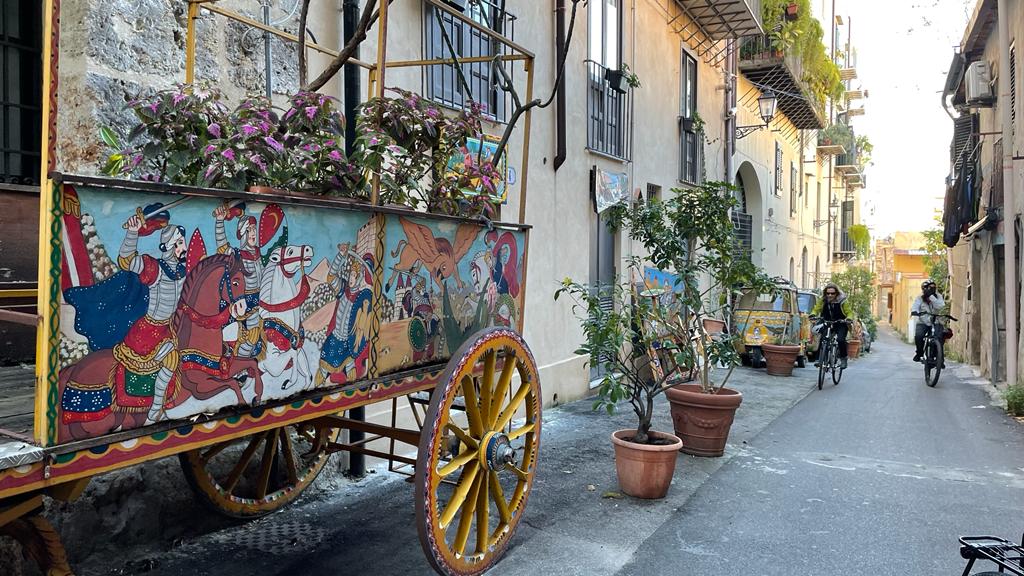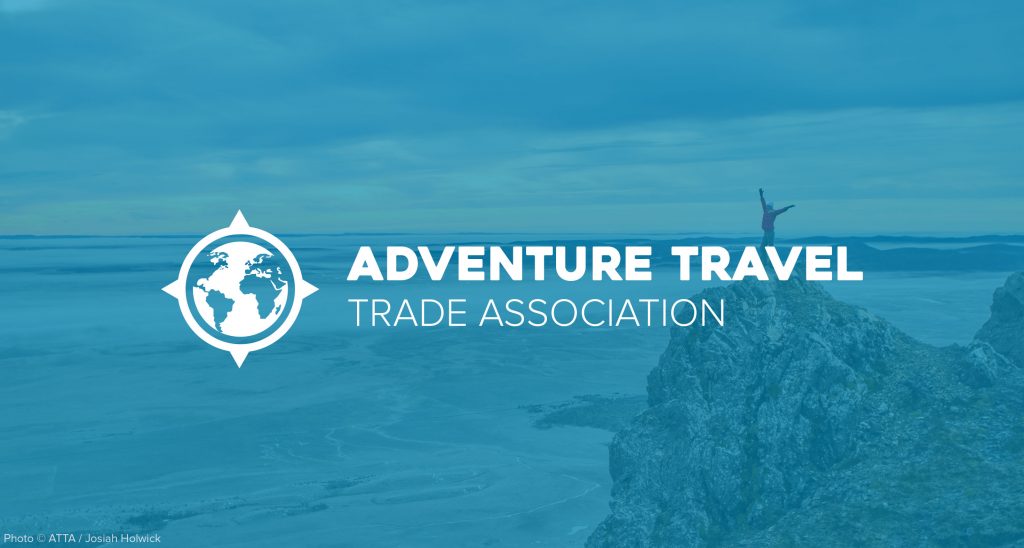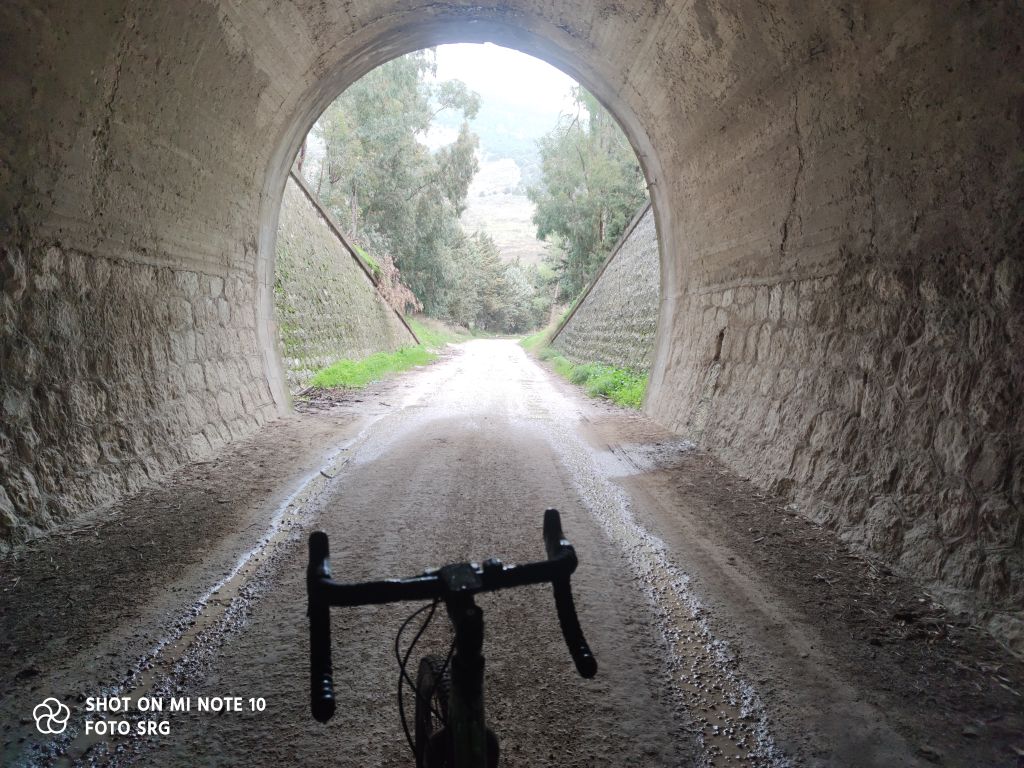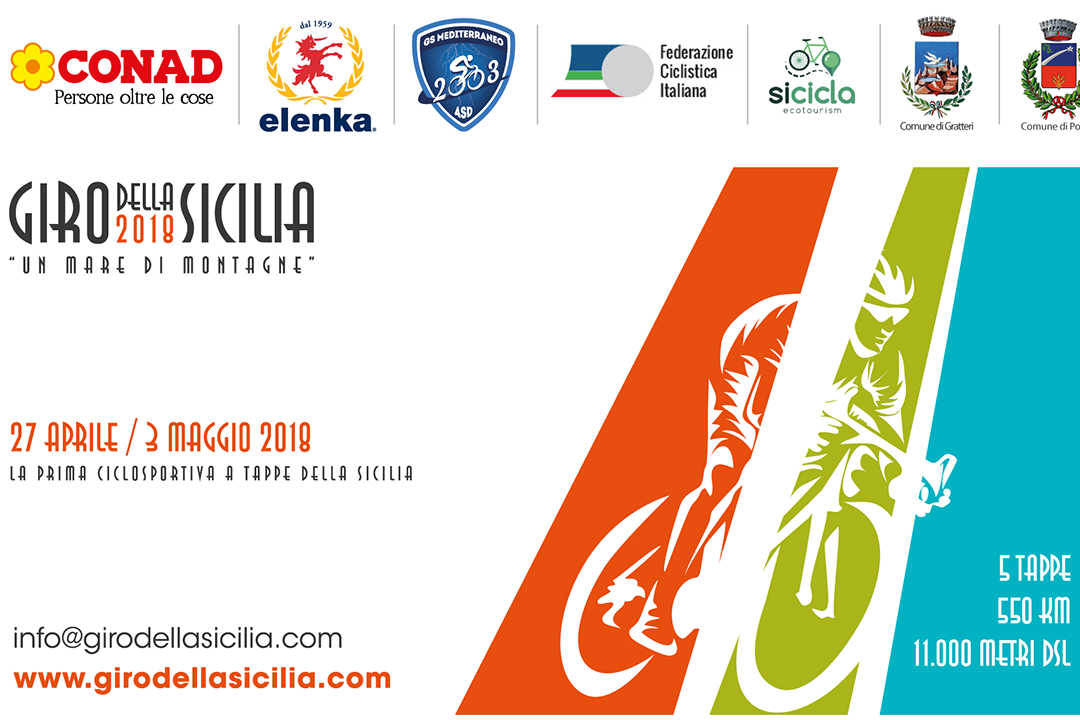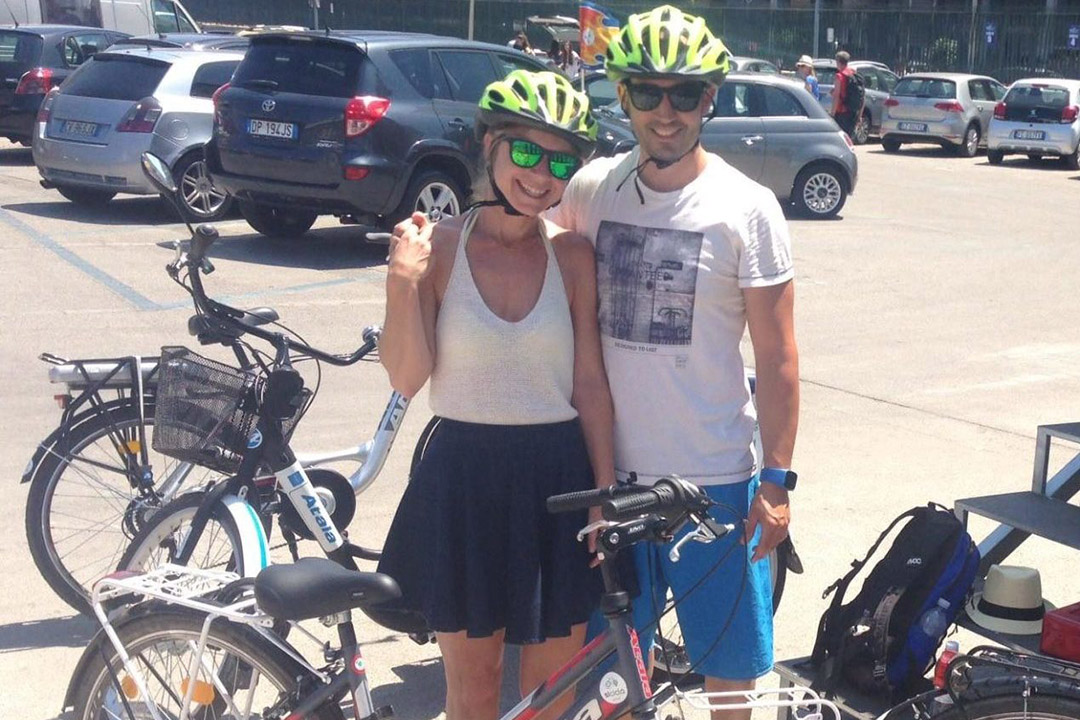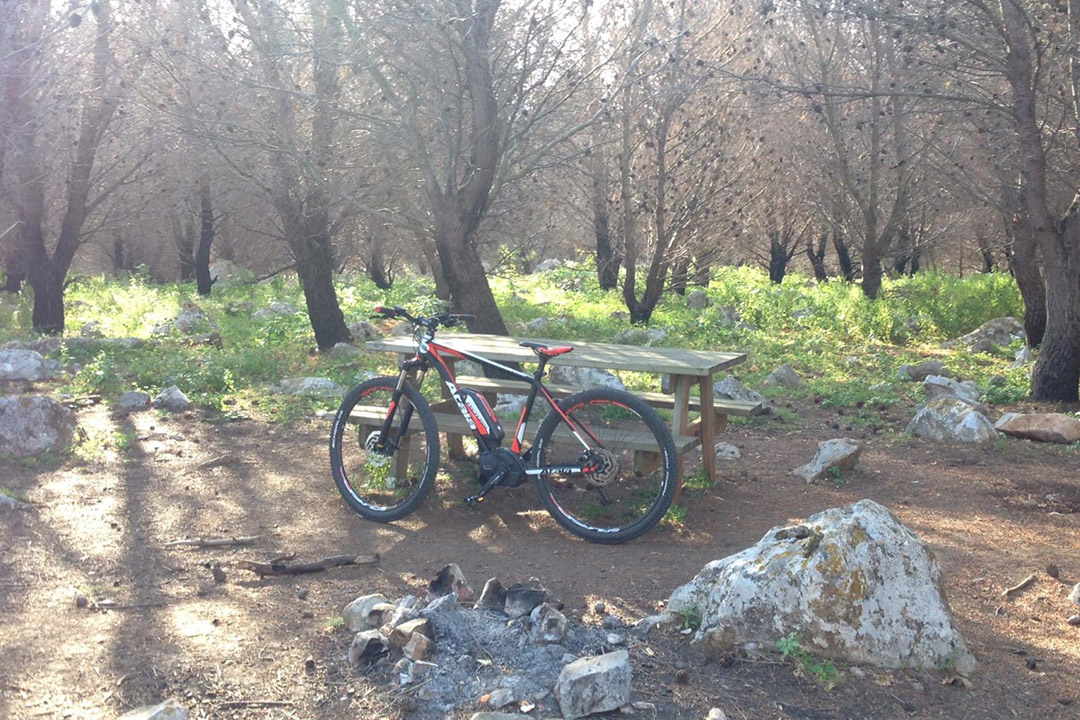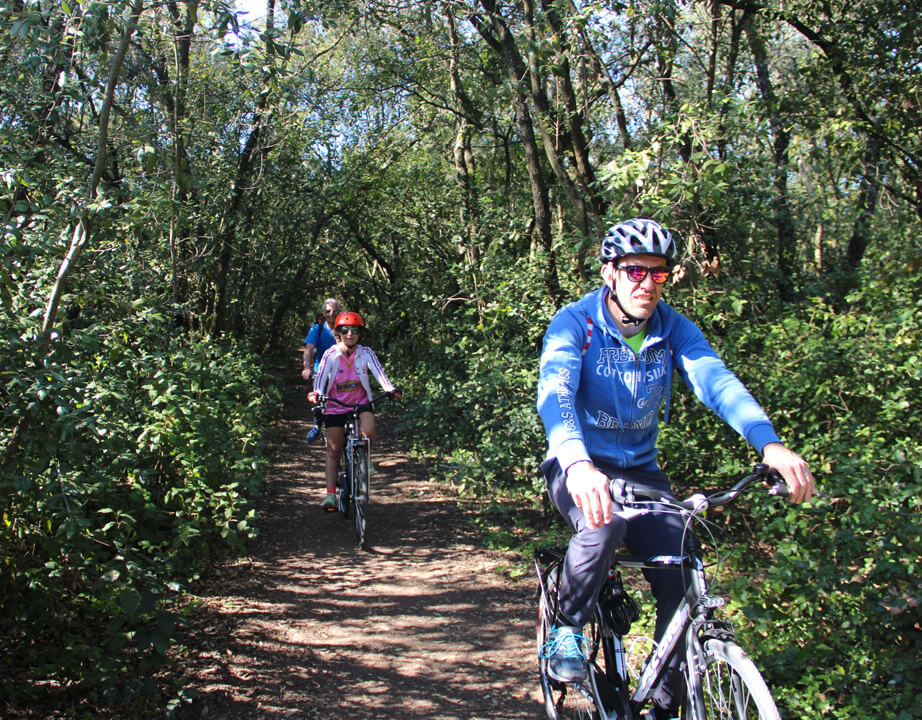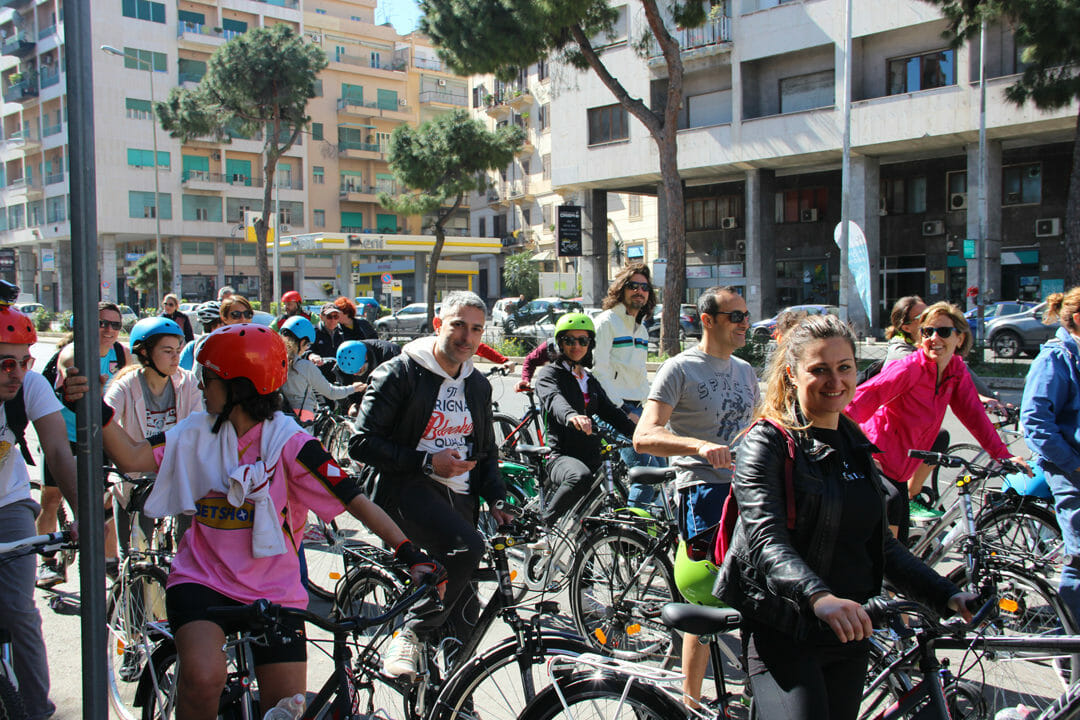CONTENUTO DEL CONTRATTO DI PACCHETTO TURISTICO
Le condizioni generali che seguono costituiscono parte integrante del contratto di viaggio, unitamente alla descrizione del pacchetto turistico contenuta nel catalogo (online o cartaceo), ovvero nel separato programma di viaggio, nonché al preventivo ed alla conferma di prenotazione dei servizi richiesti dal turista/viaggiatore. Nel sottoscrivere la proposta di compravendita di pacchetto turistico, il turista/viaggiatore deve tener bene a mente che conferma di aver letto ed accettato, per sè e per i soggetti per i quali chiede la prenotazione del pacchetto turistico, sia il contratto di viaggio (pacchetto turistico) per come ivi disciplinato, sia le avvertenze e condizioni in essa contenute, sia le presenti condizioni generali.
- FONTI LEGISLATIVE
La vendita di pacchetti turistici, che abbiano ad oggetto servizi da fornire in territorio sia nazionale sia internazionale, è disciplinata dal Codice del Turismo (artt. 32-51 – novies) così come modificato dal d.lgs. 62/2018 che attua la direttiva UE 2015/2302 e sue successive modificazioni e dalle disposizioni del codice civile in tema di trasporto e mandato, in quanto applicabili.
- REGIME AMMINISTRATIVO
L’organizzatore e il venditore del pacchetto turistico, cui il viaggiatore si rivolge, devono essere abilitati all’esecuzione dell’attività in base alla legislazione vigente, anche regionale o comunale ed operare secondo quanto ivi previsto. L’organizzatore e il venditore stabiliti sul territorio italiano devono essere coperti da contratto di assicurazione per la responsabilità civile a favore del viaggiatore per il risarcimento dei danni derivanti dalla violazione dei rispettivi obblighi assunti con i rispettivi contratti. I contratti di organizzazione di pacchetto turistico sono assistiti da polizze assicurative o garanzie bancarie che, nei casi di insolvenza o fallimento dell’organizzatore o del venditore garantiscono, senza ritardo su richiesta del viaggiatore, il rimborso del prezzo versato per l’acquisto del pacchetto e il rientro immediato del viaggiatore nel caso in cui il pacchetto includa il trasporto del viaggiatore, nonché, se necessario, il pagamento del vitto e dell’alloggio prima del rientro. Tale obbligo si applica anche ai professionisti che agevolano servizi turistici collegati, per il rimborso di tutti i pagamenti che ricevono dai viaggiatori.
- DEFINIZIONI
Ai fini del presente contratto s’intende per:
a) “viaggiatore”: chiunque intende concludere un contratto, stipula un contratto o e autorizzato a viaggiare in base a un contratto di pacchetto turistico o servizio turistico collegato;
b) “professionista”: qualsiasi persona fisica o giuridica pubblica o privata che, nell’ambito della sua attività
commerciale, industriale, artigianale o professionale agisce, nei contratti di pacchetto turistico o servizio turistico collegato, anche tramite altra persona che opera in suo nome o per suo conto, in veste di organizzatore, venditore, professionista che agevola servizi turistici collegati o di fornitore di servizi turistici, ai sensi della normativa vigente;
c) “organizzatore”: un professionista che combina pacchetti e li vende o li offre in vendita direttamente o tramite o unitamente a un altro professionista, oppure il professionista che trasmette i dati relativi al viaggiatore a un altro professionista conformemente alla lettera c), numero 2.4) dell’ 33 del Codice del Turismo;
d) “venditore”: il professionista diverso dall’organizzatore che vende o offre in vendita pacchetti combinati da un organizzatore;
e) “stabilimento”: lo stabilimento definito dall’articolo 8, comma 1, lettera e), del decreto legislativo 26 marzo 2010, n. 59;
f) “supporto durevole”: ogni strumento che permette al viaggiatore o al professionista di conservare le informazioni che gli sono personalmente indirizzate in modo da potervi accedere in futuro per un periodo di tempo adeguato alle finalità cui esse sono destinate e che consente la riproduzione identica delle informazioni memorizzate;
g) “circostanze inevitabili e straordinarie”: una situazione fuori dal controllo della parte che invoca una tale situazione e le cui conseguenze non sarebbero state evitate nemmeno adottando tutte le ragionevoli misure;
h) “difetto di conformità”: un inadempimento dei servizi turistici inclusi in un pacchetto;
i) “minore”: persona di età inferiore ai 18 anni;
l) “rientro”: il ritorno del viaggiatore al luogo di partenza o ad altro luogo concordato dalle parti contraenti.
4. NOZIONE DI PACCHETTO TURISTICO E SERVIZIO TURISTICO COLLEGATO
4.1. Si intende “pacchetto turistico” la combinazione di almeno due tipi diversi di servizi turistici (ossia: 1. il trasporto di passeggeri; 2. l’alloggio che non costituisce parte integrante del trasporto di passeggeri e non è destinato a fini residenziali o per corsi di lingua di lungo periodo; 3. il noleggio di auto, di altri veicoli o motoveicoli e che richiedano una patente di guida di categoria A; 4. qualunque altro servizio turistico che non costituisce parte integrante di uno dei servizi turistici di cui ai numeri 1), 2) o 3), e non sia un servizio finanziario o assicurativo, nè qualificabile come “servizio turistico integrativo”) ai fini dello stesso viaggio o della stessa vacanza, se si verifica almeno una delle seguenti condizioni:
A) tali servizi sono combinati da un unico professionista, anche su richiesta del viaggiatore o conformemente a una sua selezione, prima che sia concluso un contratto unico per tutti i servizi;
B) tali servizi, anche se conclusi con contratti distinti con singoli fornitori di servizi turistici, sono:
B.1 acquistati presso un unico punto vendita e selezionati prima che il viaggiatore acconsenta al pagamento;
B.2 offerti, venduti a prezzo forfettario o globale;
B.3 pubblicizzati o venduti sotto la denominazione “pacchetto” o denominazione analoga;
B.4 combinati dopo la conclusione di un contratto con cui il professionista consente al viaggiatore di scegliere tra una selezione di tipi diversi di servizi turistici, oppure acquistati presso professionisti distinti attraverso processi collegati di prenotazione per via telematica ove il nome del viaggiatore, gli estremi del pagamento e l’indirizzo di posta elettronica siano trasmessi dal professionista con cui è concluso il primo contratto a uno o più professionisti e il contratto con quest’ultimo o questi ultimi professionisti sia concluso al più tardi 24 ore dopo la conferma della prenotazione del primo servizio turistico;
4.2. Si intende “servizio turistico collegato” almeno due tipi diversi di servizi turistici acquistati ai fini dello stesso viaggio o della stessa vacanza, che non costituiscono un pacchetto, e che comportano la conclusione di contratti distinti con i singoli fornitori di servizi turistici, se un professionista agevola, alternativamente: 1) al momento di un’unica visita o un unico contatto con il proprio punto vendita, la selezione distinta e il pagamento distinto di ogni servizio turistico da parte dei viaggiatori; 2) l’acquisto mirato di almeno un servizio turistico aggiuntivo presso un altro professionista quando tale acquisto e concluso entro le 24 ore dalla conferma della prenotazione del primo servizio turistico.
4.3 I contratti aventi ad oggetto l’offerta del solo servizio di trasporto, di soggiorno, ovvero di qualunque altro separato servizio turistico, non potendosi configurare come fattispecie negoziale di organizzazione di viaggio ovvero di pacchetto turistico, non godono delle tutele offerte dalla Direttiva UE 2015/2302 e del Cod. Tur. (artt. da 32 a 51nonies) e sono disciplinati dalle previsioni specificamente riferite alla vendita del singolo servizio oggetto di contratto.
- INFORMAZIONI AL VIAGGIATORE – SCHEDA TECNICA
5.1. Prima della conclusione del contratto di pacchetto turistico o di un’offerta corrispondente l’organizzatore e il venditore forniscono al viaggiatore il pertinente “modulo informativo standard” e comunicano al viaggiatore le seguenti informazioni:
a) le caratteristiche principali dei servizi turistici, quali: 1) la destinazione o le destinazioni del viaggio, l’itinerario e i periodi di soggiorno con relative date e, se e incluso l’alloggio, il numero di notti comprese;
2) i mezzi, le caratteristiche e le categorie di trasporto, i luoghi, le date e gli orari di partenza e ritorno, la durata e la località di sosta intermedia e le coincidenze; nel caso in cui l’orario esatto non sia ancora stabilito, l’organizzatore e, se del caso, il venditore, informano il viaggiatore dell’orario approssimativo di partenza e ritorno; 3) l’ubicazione, le caratteristiche principali e, ove prevista, la categoria turistica dell’alloggio ai sensi della regolamentazione del paese di destinazione; 4) i pasti forniti; 5) le visite, le escursioni o altri servizi inclusi nel prezzo totale pattuito del pacchetto; 6) i servizi turistici prestati al viaggiatore in quanto membro di un gruppo e, in tal caso, le dimensioni approssimative del gruppo; 7) la lingua in cui sono prestati i servizi; 8) se il viaggio o la vacanza sono idonei a persone a mobilita ridotta e, su richiesta del viaggiatore, informazioni precise sull’idoneità del viaggio o della vacanza che tenga conto delle
esigenze del viaggiatore;
b) la denominazione commerciale e l’indirizzo geografico dell’organizzatore e del venditore, i loro recapiti telefonici e indirizzi di posta elettronica;
c) il prezzo totale del pacchetto comprensivo di tasse e tutti i diritti, imposte e altri costi aggiuntivi, ivi comprese le eventuali spese amministrative e di gestione delle pratiche, oppure, ove questi non siano ragionevolmente calcolabili prima della conclusione del contratto, un’indicazione del tipo di costi aggiuntivi che il viaggiatore potrebbe dover ancora sostenere;
d) le modalità di pagamento, compresi l’eventuale importo o percentuale del prezzo da versare a titolo di acconto e il calendario per il versamento del saldo, o le garanzie finanziarie che il viaggiatore e tenuto a pagare o fornire;
e) il numero minimo di persone richiesto per il pacchetto e il termine di cui all’articolo 41, comma 5, lettera a) prima dell’inizio del pacchetto per l’eventuale risoluzione del contratto in caso di mancato raggiungimento del numero;
f) le informazioni di carattere generale concernenti le condizioni in materia di passaporto e visti, compresi i tempi approssimativi per l’ottenimento dei visti, formalità sanitarie del paese di destinazione;
g) le informazioni sulla facoltà per il viaggiatore di recedere dal contratto in qualunque momento prima dell’inizio del pacchetto dietro pagamento di adeguate spese di recesso o, se previste, delle spese di recesso standard richieste dall’organizzatore;
h) le informazioni sulla sottoscrizione facoltativa o obbligatoria di un’assicurazione che copra le spese di recesso unilaterale dal contratto da parte del viaggiatore o le spese di assistenza, compreso il rientro, in caso di infortunio, malattia o decesso;
i) gli estremi della copertura a protezione in caso di insolvenza o fallimento nonché del contratto di assicurazione per la responsabilità civile a favore del viaggiatore;
l) informazioni sull’identità del vettore aereo operativo, ove non nota al momento della prenotazione, giusta previsione art.11 Reg. Ce 2111\05 (Art. 11, comma 2 Reg. Ce 2111/05: “Se l’identità del vettore aereo effettivo o dei vettori aerei effettivi non è ancora nota al momento della prenotazione, il contraente del trasporto aereo fa in modo che il passeggero sia informato del nome del vettore o dei vettori aerei che opereranno in quanto vettori aerei effettivi per il volo o i voli interessati. In tal caso, il contraente del trasporto aereo farà in modo che il passeggero sia informato dell’identità del vettore o dei vettori aerei effettivi non appena la loro identità sia stata accertata ed il loro eventuale divieto operativo nell’Unione Europea”
5.2. Per i contratti di pacchetto turistico stipulati per telefono, l’organizzatore o il professionista fornisce al viaggiatore le informazioni previste dal “modulo informativo standard” di cui all’allegato A, parte II, del Codice del Turismo.
5.3. In considerazione del largo anticipo con cui vengono pubblicati i cataloghi che riportano le informazioni
relative alle modalità di fruizione dei servizi, si precisa che gli orari e le tratte dei voli indicati nella accettazione della proposta di compravendita dei servizi potrebbero subire variazioni poiché soggetti a successiva convalida; gli orari definitivi dei voli verranno comunicati nei giorni antecedenti la partenza e il ritorno. Si precisa che i voli charter non sono soggetti, per definizione, ad una programmazione oraria sistematica.
- PROPOSTA D’ACQUISTO – PRENOTAZIONI
6.1. Al momento della conclusione del contratto di pacchetto turistico o, comunque, appena possibile, l’organizzatore o il venditore fornisce al viaggiatore una copia o una conferma del contratto su un supporto durevole.
6.2 Il viaggiatore ha diritto a una copia cartacea qualora il contratto di pacchetto turistico sia stato stipulato alla contemporanea presenza fisica delle parti.
6.3. Per quanto riguarda i contratti negoziati fuori dei locali commerciali, definiti all’articolo 45, comma 1, lettera h), del decreto legislativo 6 settembre 2005, n. 206, una copia o la conferma del contratto di pacchetto turistico e fornita al viaggiatore su carta o, se il viaggiatore acconsente, su un altro supporto durevole.
6.4. ll contratto di pacchetto turistico si intende perfezionato, con conseguente conclusione del contratto, solo nel momento in cui l’organizzatore invierà conferma, anche a mezzo sistema telematico, al viaggiatore presso il venditore.
6.5 Il viaggiatore deve comunicare al venditore, prima della prenotazione, eventuali richieste specifiche che si considerano oggetto del contratto solamente se possibili, riportate per iscritto nel contratto ed accettate
Dall’organizzatore.
6.6. I documenti di viaggio (es. voucher) verranno consegnati al viaggiatore in tempo utile prima della partenza e il viaggiatore dovrà conservarli e portarli con se durante il viaggio, per poter usufruire dei servizi regolarmente prenotati, unitamente ad altri eventuali documenti (es. biglietti aerei) consegnati dal venditore. Il viaggiatore è tenuto a verificare la correttezza dei dati riportati sui predetti documenti e sul contratto di viaggio e a comunicare immediatamente al venditore eventuali errori. Il viaggiatore deve comunicare all’organizzatore i dati dei partecipanti esattamente come riportati sui documenti personali d’identità.
6.7. Eventuali escursioni, servizi o prestazioni acquistati e pagati dai viaggiatori a destinazione sono estranei al presente contratto. Pertanto nessuna responsabilità in merito a ciò potrà essere ascritta all’organizzatore o al venditore, neppure nell’eventualità che, a titolo di cortesia, personale residente, accompagnatori, guide o corrispondenti locali possano occuparsi della loro prenotazione.
- PAGAMENTI
7.1. All’atto della sottoscrizione del contratto dovrà essere corrisposta: a) la quota d’iscrizione o gestione pratica (vedi art. 8); b) acconto nella misura indicata dall’organizzatore o dal venditore che viene versato a titolo di caparra confirmatoria ed anticipo conto prezzo. Nel periodo di validità della proposta di compravendita del pacchetto e/o dei servizi turistici indicati e pertanto prima della eventuale conferma di prenotazione che costituisce perfezionamento del contratto, gli effetti di cui all’art.1385 c.c. non si producono.
Il saldo dovrà essere improrogabilmente versato entro il termine stabilito dall’organizzatore nel proprio catalogo o nella conferma di prenotazione;
7.2. Il mancato pagamento delle somme di cui sopra, alle date stabilite, al pari della mancata rimessione all’organizzatore delle somme versate dal viaggiatore al venditore comporterà la automatica risoluzione di diritto del contratto da operarsi con semplice comunicazione scritta, via fax o via e-mail, presso il venditore, o presso il domicilio anche elettronico, ove comunicato, del viaggiatore. Il saldo del prezzo si considera avvenuto quando le somme pervengono all’organizzatore direttamente dal viaggiatore o per il tramite del venditore.
- PREZZO E REVISIONE DEL PREZZO
8.1 Il prezzo del pacchetto turistico è determinato nel contratto, con riferimento a quanto indicato in catalogo o sul sito web dell’organizzatore, o programma fuori catalogo/su misura ed agli eventuali aggiornamenti degli stessi cataloghi o programmi fuori catalogo successivamente intervenuti, o nel sito web dell’operatore. Esso potrà essere variato, in aumento o diminuzione, soltanto in conseguenza alle variazioni di: – prezzo del trasporto di passeggeri in funzione del costo del carburante o altre fonti di energia; – il livello di diritti e tasse sui servizi turistici inclusi nel contratto imposti da terzi non direttamente coinvolti nell’esecuzione del pacchetto, comprese le tasse di atterraggio, di sbarco o di imbarco nei porti e negli aeroporti; – tassi di cambio pertinenti al pacchetto in questione. Un aumento di prezzo è possibile solo previa comunicazione su supporto durevole da parte dell’organizzatore al viaggiatore unitamente alla giustificazione di tale aumento e alle modalità di calcolo, almeno 20 giorni prima dell’inizio del pacchetto. Se l’aumento di prezzo eccede l’8% del prezzo complessivo del pacchetto si applica il successivo punto 9.2 In caso di diminuzione del prezzo, l’organizzatore ha diritto di detrarre le spese amministrative e di gestione delle pratiche effettive dal rimborso dovuto al viaggiatore, delle quali e tenuto a fornire prova su richiesta del viaggiatore.
8.2. Il prezzo è composto da: a) quota di iscrizione o quota gestione pratica; b) quota di partecipazione: espressa in catalogo o nella quotazione del pacchetto fornita dal venditore al viaggiatore; c) costo eventuali polizze assicurative contro i rischi di annullamento, recesso e/o spese mediche o altri servizi richiesti; d) costo eventuali visti e tasse di ingresso ed uscita dai Paesi meta della vacanza; e) oneri e tasse aeroportuali e\o portuali.
- MODIFICA, RECESSO DELL’ORGANIZZATORE O ANNULLAMENTO DEL PACCHETTO TURISTICO PRIMA DELLA PARTENZA
9.1. Prima dell’inizio del pacchetto, l’organizzatore può unilateralmente modificare le condizioni del contratto diverse dal prezzo, purché si tratti di modifiche di scarsa importanza, comunicandole al viaggiatore su un supporto durevole, anche tramite il venditore.
9.2. Se, prima dell’inizio del pacchetto, l’organizzatore è costretto a modificare in modo significativo una o più caratteristiche principali dei servizi turistici o non può soddisfare le richieste specifiche accettate in precedenza e riportate espressamente nel contratto oppure propone di aumentare il prezzo del pacchetto di oltre l’8%, il viaggiatore, entro un periodo ragionevole specificato dall’organizzatore contestualmente alla comunicazione di modifica, può accettare la modifica proposta oppure recedere dal contratto senza corrispondere spese di recesso.
In caso di recesso, l’organizzatore può offrire al viaggiatore un pacchetto sostitutivo di qualità equivalente o
superiore. La comunicazione di modifica indica al viaggiatore le modifiche proposte, la loro incidenza sul prezzo del pacchetto, il termine entro il quale il viaggiatore è tenuto a informare l’organizzatore della sua decisione e le conseguenze della mancata risposta del viaggiatore entro il predetto periodo nonché l’eventuale pacchetto sostitutivo offerto e il relativo prezzo.
9.3. Se le modifiche del contratto di pacchetto turistico o il pacchetto sostitutivo comportano un pacchetto di qualità o costo inferiore, il viaggiatore ha diritto a un’adeguata riduzione del prezzo.
9.4. In caso di recesso dal contratto di pacchetto turistico ai sensi del precedente comma, se il viaggiatore non accetta un pacchetto sostitutivo, l’organizzatore rimborsa senza ingiustificato ritardo e in ogni caso entro quattordici giorni dal recesso dal contratto tutti i pagamenti effettuati da o per conto del viaggiatore e si applicano le disposizioni di cui all’articolo 43, commi 2, 3, 4, 5, 6, 7, 8 Codice Turismo.
9.5. L’organizzatore può recedere dal contratto di pacchetto turistico e offrire al viaggiatore il rimborso integrale dei pagamenti effettuati per il pacchetto, ma non è tenuto a versare un indennizzo supplementare se: a) il numero di persone iscritte al pacchetto è inferiore al minimo previsto dal contratto e l’organizzatore comunica il recesso dal contratto al viaggiatore entro il termine fissato nel contratto e in ogni caso non più tardi di 20 giorni prima dell’inizio del pacchetto in caso di viaggi che durano più di 6 giorni, di 7 giorni prima dell’inizio del pacchetto in caso di viaggi che durano tra 2 e 6 giorni, di 48 ore prima dell’inizio del pacchetto nel caso di viaggi che durano meno di 2 giorni; b) l’organizzatore non è in grado di eseguire il contratto a causa di circostanze inevitabili e straordinarie e comunica il recesso dal medesimo al viaggiatore senza ingiustificato ritardo prima dell’inizio del pacchetto.
9.6 Per annullamenti diversi da quelli sopra esposti l’Organizzatore che annulla restituirà al viaggiatore una somma pari al doppio di quanto dallo stesso pagato ed effettivamente incassato dall’Organizzatore, tramite l’Agenzia di Viaggi.
- RECESSO DEL VIAGGIATORE
10.1 In caso di circostanze inevitabili e straordinarie verificatesi nel luogo di destinazione o nelle sue immediate vicinanze e che hanno un’incidenza sostanziale sull’esecuzione del pacchetto o sul trasporto di passeggeri verso la destinazione, il viaggiatore ha diritto di recedere dal contratto, prima dell’inizio del pacchetto, senza corrispondere spese di recesso, ed al rimborso integrale dei pagamenti effettuati per il pacchetto, ma non ha diritto a un indennizzo supplementare. L’eventuale impossibilità sopravvenuta di usufruire del pacchetto da parte del viaggiatore non legittima il recesso senza penali, potendo il viaggiatore garantirsi dal rischio economico connesso a tale fattispecie di recesso dal contratto, con la stipula di apposita polizza assicurativa.
10.2 Al di fuori delle ipotesi esplicitamente indicate in questo articolo, il viaggiatore avrà diritto di recedere dal contratto in qualunque momento prima dell’inizio del viaggio, fermo l’obbligo di pagare le spese/penali di recesso come di seguito indicate – indipendentemente dal pagamento dell’acconto di cui sopra – oltre al costo individuale di gestione previste dall’organizzatore, che dipendono dalla destinazione prescelta e dal momento in cui il viaggiatore recede rispetto alla data di partenza. In assenza di specificazione delle spese standard di recesso, l’importo delle spese di recesso corrisponde al prezzo del pacchetto diminuito dei risparmi di costo e degli introiti che derivano dalla riallocazione dei servizi turistici.
Nel caso di gruppi precostituiti tali somme verranno stabilite di volta in volta nella proposta di contratto.
10.3 Il viaggiatore può stipulare delle polizze assicurative a copertura delle predette spese di recesso unilaterale da parte del viaggiatore o delle spese di assistenza, compreso il rientro, in caso di infortunio, malattia o decesso. In base al pacchetto prescelto, l’organizzatore informa il viaggiatore sulla sottoscrizione facoltativa o obbligatoria di tali assicurazioni.
10.4 Le spese di recesso non sono dovute per le ipotesi previste dal precedente articolo 9 punto 2.
10.5 In caso di recesso dal contratto di viaggio, il viaggiatore è comunque sempre tenuto al pagamento della quota di gestione della pratica, pari ad € 30,00 per persona.
10.6 Il computo dei giorni ai fini dell’applicazione delle penali di recesso si effettua conteggiando tutti i giorni lavorativi (sempre esclusi il sabato e festivi), escludendo dal conteggio il giorno dell’annullamento ed includendo invece il giorno della partenza.
10.7 Ai sensi dell’art. 41 comma 2 Codice Turismo vengono pattuite le seguenti penali per il recesso: -fino a 30 gg. prima dell’inizio del viaggio: 30% sull’importo totale; – da 29 a 21 gg. prima dell’inizio del viaggio: 40% sull’importo totale; da 20 a 14 gg. prima dell’inizio del viaggio: 60% sull’importo totale; da 13 a 6 gg. prima dell’inizio del viaggio: 80% sull’importo totale; nei 5 gg. prima dell’inizio del viaggio: 100% dell’importo totale. Le stesse somme dovranno essere corrisposte anche da chi non possa effettuare il viaggio per mancanza o irregolarità dei documenti personali di espatrio previsti; nel caso in cui il viaggiatore non si presenti al luogo di partenza stabilito nel programma di viaggio o decida di interrompere il viaggio o il soggiorno già intrapreso non può essere accordato alcun rimborso.
10.8 La validità della comunicazione di annullamento del viaggio è subordinata all’adozione della forma scritta.
10.9 Nei pacchetti turistici con volo o viaggio treno incluso: se il biglietto aereo/ferroviario è già stato emesso, la penale va calcolata sull’importo della vacanza detraendo il costo del biglietto, che andrà addebitato interamente.
- MODIFICA DELLA PRENOTAZIONE
11.1 Per ogni e qualsiasi richiesta di modifica alla prenotazione già accettata saranno dovuti € 30,00 per persona a copertura delle spese operative.
11.2 La diminuzione del numero di persone e la richiesta di cambio data di partenza fatta entro i 30 gg. dalla stessa sono considerate come recesso e quindi soggetti alle penali di annullamento di annullamento indicate sopra (vedi punto 10 recesso del viaggiatore). Le modifiche richieste dal viaggiatore a prenotazione già accettata non obbligano l’Organizzatore nei casi in cui non possano essere soddisfatte.
- MODIFICHE DOPO LA PARTENZA
L’Organizzatore, qualora dopo la partenza si trovi nell’impossibilità di fornire per qualsiasi ragione, tranne che per un fatto proprio del viaggiatore, una parte essenziale dei servizi contemplati in contratto, dovrà predisporre soluzioni alternative, senza supplementi di prezzo a carico del viaggiatore, oppure rimborsarlo nei limiti della differenza tra le prestazioni originariamente previste e quelle effettuate; qualora non risulti possibile alcuna soluzione alternativa, ovvero la ovvero la soluzione predisposta dall’organizzatore venga rifiutata dal viaggiatore per comprovati e giustificati motivi, l’organizzatore fornirà senza supplemento di prezzo, un mezzo di trasporto equivalente a quello originario previsto per il ritorno al luogo di partenza o al diverso luogo eventualmente pattuito, compatibilmente alle disponibilità del mezzo e di posti e lo rimborserà nella misura della differenza tra il costo delle prestazioni previste e quello delle prestazioni effettuate fino al momento del rientro anticipato.
- SOSTITUZIONI
13.1 Il viaggiatore rinunciatario può farsi sostituire da altra persona sempre che:
- a) l’organizzatore ne sia informato per iscritto almeno 7 giorni prima della data fissata per la partenza, ricevendo contestualmente comunicazione circa le generalità del soggetto subentrante;
- b) il sostituto soddisfi tutte le condizioni per la fruizione del servizio (ex art. 38 Cod. Tur.) ed in particolare i requisiti relativi al passaporto, ai visti, ai certificati sanitari;
- c) i servizi medesimi o altri servizi in sostituzione possano essere erogati a seguito della sostituzione;
- d) vengano rimborsate all’Organizzatore tutte le spese aggiuntive sostenute per procedere alla sostituzione, nella misura che verrà quantificata al cedente prima della cessione.
13.2 Il cedente ed il cessionario sono solidalmente responsabili per il pagamento del saldo del prezzo nonché degli importi di cui alla lettera d) par. 13.1 del presente articolo.
- OBBLIGHI DEI VIAGGIATORI
14.1 Nel corso delle trattative e comunque prima della conclusione del contratto, ai cittadini italiani sono fornite per iscritto le informazioni di carattere generale – aggiornate alla data di comunicazione del preventivo – relative agli obblighi sanitari e alla documentazione necessaria per l’espatrio. I cittadini stranieri reperiranno le corrispondenti informazioni attraverso le loro rappresentanze diplomatiche presenti in Italia e/o i rispettivi canali informativi governativi ufficiali. In ogni caso i viaggiatori provvederanno, prima della partenza, a verificarne l’aggiornamento presso le competenti Autorità (per i cittadini italiani le locali Questure ovvero il Ministero degli Affari Esteri tramite il sito www.viaggiaresicuri.it ovvero la Centrale Operativa Telefonica al numero 06.491115) adeguandovisi prima del viaggio. In assenza di tale verifica, nessuna responsabilità per la mancata partenza di uno o più viaggiatori potrà essere imputata all’intermediario o all’organizzatore.
14.2 I viaggiatori dovranno essere muniti di passaporto individuale o di altro documento valido per tutti i paesi toccati dall’itinerario, nonché dei visti di soggiorno e di transito e dei certificati sanitari che fossero eventualmente richiesti. Essi inoltre dovranno attenersi all’osservanza delle regole di normale prudenza e diligenza ed a quelle specifiche in vigore nei paesi destinazione del viaggio, a tutte le informazioni fornite loro dall’organizzatore, nonché ai regolamenti ed alle disposizioni amministrative o legislative relative al pacchetto turistico.
14.3 Al fine di valutare la situazione di sicurezza socio/politica, sanitaria e ogni altra informazione utile relativa ai Paesi di destinazione e, dunque, l’utilizzabilità oggettiva dei servizi acquistati o da acquistare, il viaggiatore avrà l’onere di assumere le informazioni ufficiali di carattere generale presso il Ministero Affari Esteri, e divulgate attraverso il sito istituzionale della Farnesina www.viaggiaresicuri.it. Tali informazioni non sono contenute nei cataloghi e/o nella documentazione fornita dall’organizzatore poiché essi contengono informazioni descrittive di carattere generale per come indicate nell’art. 34 del codice del Turismo e non informazioni temporalmente mutevoli. Le stesse pertanto dovranno essere assunte a cura del viaggiatore.
14.4 Ove alla data di prenotazione la destinazione prescelta risultasse, dai canali informativi istituzionali, località sconsigliata per motivi di sicurezza, il viaggiatore che successivamente dovesse esercitare il recesso non potrà invocare, ai fini dell’esonero o della riduzione della richiesta di indennizzo per il recesso operato, il venir meno della causa contrattuale connessa alle condizioni di sicurezza del Paese.
14.5 Il viaggiatore comunicherà altresì per iscritto all’organizzatore, all’atto della prenotazione, le particolari richieste personali che potranno formare oggetto di accordi specifici sulle modalità del viaggio, sempre che ne risulti possibile l’attuazione.
14.6 Il viaggiatore è sempre tenuto ad informare il venditore e l’organizzatore di eventuali sue esigenze o condizioni particolari (a titolo esemplificativo e non esaustivo, gravidanza, intolleranze alimentari, disabilità) ed a specificare esplicitamente la richiesta di relativi servizi personalizzati.
14.7 Il viaggiatore sarà chiamato a rispondere di tutti i danni che l’organizzatore o il venditore dovesse subire a causa dell’inadempienza alle obbligazioni del viaggiatore previste da questo contratto.
14.8 Ai sensi dell’art. 51quinques, comma 2, Cod. Tur., il viaggiatore è tenuto a fornire all’organizzatore o al venditore tutti i documenti, le informazioni e gli elementi in suo possesso utili per l’esercizio del diritto di surroga di quest’ultimo nei confronti dei terzi responsabili dell’evento da cui sia disceso un risarcimento del danno, indennizzo, diminuzione del prezzo o altro rimedio prestato dall’organizzatore o dal venditore in favore del viaggiatore. Il viaggiatore è responsabile verso l’organizzatore o il venditore di qualsiasi pregiudizio arrecato al diritto di surrogazione.
- CLASSIFICAZIONE ALBERGHIERA
15.1 La classificazione ufficiale delle strutture alberghiere viene fornita in catalogo od in altro materiale informativo soltanto in base alle espresse e formali indicazioni delle competenti autorità del paese in cui il servizio è erogato.
15.2 In assenza di classificazioni ufficiali riconosciute dalle competenti Pubbliche Autorità dei paesi anche membri della UE cui il servizio si riferisce, l’organizzatore si riserva la facoltà di fornire in catalogo una propria descrizione della struttura ricettiva, tale da permettere una valutazione e conseguente accettazione della stessa da parte del viaggiatore.
- REGIME DI RESPONSABILITA’
16.1 L’organizzatore è responsabile dell’esecuzione dei servizi turistici previsti dal contratto di pacchetto turistico, indipendentemente dal fatto che tali servizi turistici devono essere prestati dall’organizzatore stesso, dai suoi ausiliari o preposti quando agiscono nell’esercizio delle loro funzioni, dai terzi della cui opera si avvale o da altri fornitori di servizi turistici, ai sensi dell’art. 1228 del codice civile.
16.2 Il venditore presso il quale sia stata effettuata la prenotazione del pacchetto turistico non risponde in alcun caso delle obbligazioni nascenti dall’organizzazione del viaggio, ma è responsabile esclusivamente delle obbligazioni nascenti dalla sua qualità di intermediario. Il venditore che si obbliga a procurare a terzi, anche in via telematica, un servizio turistico disaggregato, è tenuto a rilasciare al viaggiatore i documenti relativi a questo servizio, che riportino la somma pagata per il servizio e non può in alcun modo essere considerato Organizzatore di viaggio.
16.3 Se uno dei servizi turistici non è eseguito secondo quanto pattuito nel contratto di pacchetto turistico, l’Organizzatore pone rimedio al difetto di conformità, a meno che ciò risulti impossibile oppure risulti eccessivamente oneroso, tenendo conto dell’entità del difetto di conformità e del valore dei servizi turistici interessati dal difetto. Se l’organizzatore non pone rimedio al difetto, il viaggiatore ha diritto alla riduzione del prezzo nonché al risarcimento del danno che abbia subito in conseguenza del difetto di conformità, a meno che l’Organizzatore dimostri che il difetto di conformità (i) è imputabile al viaggiatore o ad un terzo estraneo alla fornitura dei servizi turistici; o (ii) ha carattere inevitabile o imprevedibile oppure dovuto a circostanze straordinarie ed inevitabili.
16.4 Se l’Organizzatore non pone rimedio al difetto di conformità entro un periodo ragionevole fissato dal viaggiatore nella sua contestazione, questi può ovviare personalmente al difetto e chiedere il rimborso delle spese necessarie, ragionevoli e documentate. Se un difetto di conformità costituisce un inadempimento di non scarsa importanza e l’Organizzatore non vi ha posto rimedio con la contestazione tempestiva effettuata dal viaggiatore, in relazione alla durata ed alle caratteristiche del pacchetto, il viaggiatore può risolvere il contratto con effetto immediato, o chiedere – se del caso – una riduzione del prezzo, salvo l’eventuale risarcimento del danno.
16.5 In ciascun caso, si applicano gli esoneri di cui all’art. 43 commi 1 e 3 Cod. Tur. per i casi in cui la mancata od inesatta esecuzione del contratto sia imputabile al viaggiatore o sia dipesa dal fatto di un terzo estraneo alla fornitura dei servizi a carattere imprevedibile o inevitabile, ovvero è dovuto a circostanze inevitabili e straordinarie.
- LIMITI DEL RISARCIMENTO
17.1 I risarcimenti di cui all’art. 43 del Cod. Tur. e relativi termini di prescrizione, sono disciplinati da quanto ivi previsto e comunque nei limiti stabiliti, dalle Convenzioni Internazionali che disciplinano le prestazioni che formano oggetto del pacchetto turistico nonché dagli articoli 1783 e 1784 del codice civile.
17.2 Il diritto alla riduzione del prezzo o al risarcimento dei danni per le modifiche del contratto di pacchetto turistico o del pacchetto sostitutivo, si prescrive in due anni a decorrere dalla data del rientro del viaggiatore nel luogo di partenza.
17.3 Il diritto al risarcimento del danno alla persona si prescrive in tre anni a decorrere dalla data di rientro del viaggiatore nel luogo di partenza o nel più lungo periodo previsto per il risarcimento del danno alle persone dalle disposizioni che regolano i servizi compresi nel pacchetto.
17.4 Il limite massimo che può essere oggetto di risarcimento è pari a 3 volte il prezzo totale del pacchetto; quest’ultima limitazione non si applica per i casi di danni alla persona, e di danni causati intenzionalmente e/o per colpa dell’Organizzatore o del Venditore.
- OBBLIGO DI ASSISTENZA
18.1 L’Organizzatore è tenuto a prestare le misure di assistenza al viaggiatore come previsto dall’art. 45 del Cod. Tur., in particolare fornendo le informazioni riguardo ai servizi sanitari, alle autorità locali e all’assistenza consolare.
18.2 L’organizzatore può pretendere il pagamento di un costo ragionevole per tale assistenza qualora il problema alla base della necessità di assistenza sia causato intenzionalmente dal viaggiatore o per sua colpa.
- RECLAMI E DENUNCE
19.1 Ogni mancanza nell’esecuzione del contratto deve essere contestata dal viaggiatore all’Organizzatore – direttamente o tramite il venditore – tempestivamente (tenuto conto delle circostanze del caso) e in corso di viaggio affinché l’Organizzatore, il suo rappresentante locale o l’accompagnatore vi pongano tempestivamente rimedio. In caso contrario il risarcimento del danno sarà diminuito o escluso ai sensi dell’art. 1227.
19.2 Ai fi ni del rispetto dei termini o periodi di prescrizione, la data in cui il venditore riceve messaggi, richieste o reclami di cui al comma precedente, è considerata come data di ricezione anche per l’Organizzatore.
- ASSICURAZIONE CONTRO LE SPESE DI RECESSO E DI RIMPATRIO
20.1 Se non espressamente comprese nel prezzo, è possibile, ed anzi consigliabile, stipulare al momento della prenotazione presso gli uffici dell’Organizzatore o del Venditore speciali polizze assicurative contro le spese derivanti dal recesso unilaterale dal contratto da parte del viaggiatore, infortuni e bagagli. Sarà altresì possibile stipulare un contratto di assistenza che copra le spese di rimpatrio in caso di incidenti e malattie.
20.2 Il viaggiatore eserciterà i diritti nascenti da tali contratti esclusivamente nei confronti delle Compagnie di Assicurazioni stipulanti, alle condizioni e con le modalità previste da tali polizze.
- STRUMENTI ALTERNATIVI DI RISOLUZIONE DELLE CONTROVERSIE
Ai sensi e per gli effetti di cui all’art. 67 Cod.Tur. l’Organizzatore potrà proporre al viaggiatore – nel preventivo, nella documentazione, nel proprio sito internet o in altre forme – modalità di risoluzione alternative delle contestazioni insorte. In tal caso l’Organizzatore indicherà la tipologia di risoluzione alternativa proposta e gli effetti che tale adesione comporta.
- PROTEZIONE IN CASO DI INSOLVENZA O FALLIMENTO (art. 47 Cod. Tur.)
22.1 Ai sensi dell’art. 47, commi 2 e 3 del Cod. Tur., i contratti del turismo organizzato sono assistiti da idonee polizze assicurative o garanzie bancarie, che, per i viaggi all’estero e i viaggi che si svolgono all’interno di un singolo Paese (ivi compresi i viaggi in Italia), assicurino, nei casi di insolvenza o fallimento del venditore o dell’organizzatore, il rimborso del prezzo versato per l’acquisto del pacchetto e il rientro immediato del viaggiatore nel caso in cui il pacchetto include il trasporto del viaggiatore, nonché, se necessario, il pagamento del vitto e dell’alloggio prima del rientro.
22.2 All’acquirente del pacchetto turistico oggetto di vendita con il presente contratto vengono assicurate le garanzie di cui all’art. 47 del Cod. Tur. tramite l’adesione di Sicycling Tours s.n.c. al Fondo di Garanzia “Fondo Vacanze Felici scarl” con sede in Milano, Via
Larga n. 6 (www.fondovacanzefelici.it), i cui recapiti sono stati portati a conoscenza del viaggiatore.
——-
ADDENDUM CONDIZIONI GENERALI DI CONTRATTO DI VENDITA DI SINGOLI SERVIZI TURISTICI
- REQUISITI DEI PARTECIPANTI: Ogni partecipante deve essere in uno stato di forma psicofisica che gli consenta di poter svolgere e completare l’itinerario della vacanza scelta. Le persone affette da patologie gravi, disturbi fisici e mentali, malattie che necessitino di particolari cure, devono obbligatoriamente comunicarlo al venditore o all’organizzatore in fase di prenotazione, che, nel caso di incompatibilità con il livello di difficoltà della vacanza, potrà rifiutare l’iscrizione al viaggio. Nei tour in gruppo la non osservanza di questa regola potrà comportare l’esclusione durante la vacanza a discrezione dell’accompagnatore.
- SISTEMAZIONE NELLE VACANZE IN GRUPPO: Il partecipante che prenota individualmente può scegliere tra la sistemazione in camera singola (con supplemento, secondo disponibilità) o in abbinamento con altro partecipante assegnato dall’organizzatore. L’organizzatore non garantisce che sarà possibile effettuare un abbinamento al fine del pernottamento in camera doppia, possibilità che dipende anche dal numero dei viaggiatori nel gruppo e da altre circostanze al di fuori del controllo dell’Organizzatore. L’Organizzatore si riserva di richiedere ai viaggiatori che inviino singolarmente una richiesta di prenotazione per una vacanza in gruppo (quindi in mancanza di un abbinamento già individuato), una quota che varia dal 50 al 100% del supplemento singola, o quota forfettaria (l’importo è precisato in ogni scheda viaggio sul sito o nella scheda del programma di viaggio fornito al Viaggiatore).
- BICICLETTE: Ad ogni partecipante verrà consegnata una bicicletta con lucchetto. Il viaggiatore avrà l’obbligo di utilizzare e custodire con diligenza tale bicicletta per tutta la durata della vacanza, in modo da riconsegnarla priva di danni e nelle stesse condizioni in cui la ha ricevuta, salvo la normale usura. In caso di furto (indipendentemente dalla chiusura o meno del lucchetto) o danno irreparabile, il viaggiatore sarà tenuto a corrispondere all’organizzatore l’intero costo della bicicletta; a seconda del paese e del modello tale costo va da 350 € a 600 € per la bicicletta muscolare e da 1.000 € a 3.500 € per la bicicletta elettrica / a pedalata assistita. Il noleggio di una nuova bicicletta per il resto della vacanza sarà totalmente a carico del viaggiatore. Il risarcimento è richiesto anche in caso di furto o danno degli accessori forniti (es. lucchetti, seggiolini, appendici per bambini, borse laterali, caschetti…). L’ammontare varia a seconda del paese e dell’accessorio e sarà quantificato dall’Organizzatore o dal fornitore locale.
- PASTI E DIETE PARTICOLARI: I pasti inclusi nella quota sono a menù fisso. Diete particolari (abitudini e/o allergie e intolleranze gravi) vanno segnalate nel modulo di prenotazione e sono sempre soggette alla disponibilità dei ristoratori. Non è previsto alcun rimborso per pasti non usufruiti per ragioni diverse (a titolo esemplificativo e non esaustivo cambio orario o ritardo del volo, escursioni facoltative). Per richieste successive a prenotazione già confermata, saranno applicate le spese di cambio pratica; richieste dell’ultimo minuto non verranno accettate. La richiesta di menu speciali (vedi sopra) si intende per l’intera durata del viaggio, per tutti i pasti inclusi nella quota.
- ESCURSIONI, VISITE GUIDATE E MUSEI: Per ragioni non dipendenti dalla volontà dell’Organizzatore (ad esempio funzioni religiose in corso, cambio di orari/giorni di visita, flusso turistico elevato, cause di forza maggiore), escursioni e visite in programma possono essere annullate o è possibile che ne venga modificato l’ordine. Dove possibile verranno sostituite con altre visite. I costi degli ingressi descritti nei singoli programmi sono indicativi e soggetti a variazioni. Le visite indicate come “guidate” sono effettuate con il supporto di una guida locale.
- VALIDITÀ QUOTE PER VIAGGI IN GRUPPO: Le quote indicate sono valide per gruppi di minimo 12 persone (se non diversamente specificato nel singolo viaggio). Se non si riesce a raggiungere il numero minimo, l’Organizzatore potrà decidere di annullare la partenza: in questo caso i viaggiatori saranno avvisati almeno 21 giorni prima della partenza e potranno decidere se ricevere il rimborso della quota versata o lo spostamento della prenotazione su altro viaggio.
- TASSE AEROPORTUALI: Le tasse aeroportuali dei pacchetti con volo incluso non sono incluse e vanno pagate interamente col saldo del viaggio. Possono subire variazioni dovute alle oscillazioni del carburante e alle decisioni delle compagnie aeree. L’importo esatto delle tasse verrà definito al momento dell’emissione del biglietto aereo: eventuali variazioni di prezzo saranno comunicate tempestivamente.
- PARTENZA DA ALTRI AEROPORTI: In alcuni viaggi è possibile richiedere la partenza da un aeroporto diverso da quello previsto dal pacchetto. La variazione potrebbe comportare un aumento tariffario rispetto alla tariffa gruppo, variabile a seconda della compagnia aerea e del periodo di prenotazione. Tale importo non è quantificabile se non al momento dell’effettiva richiesta.
